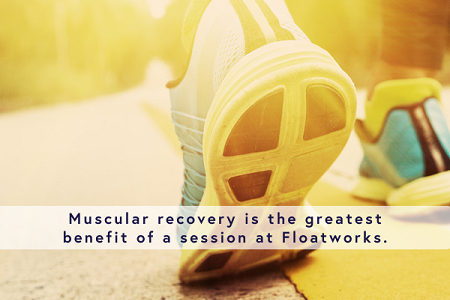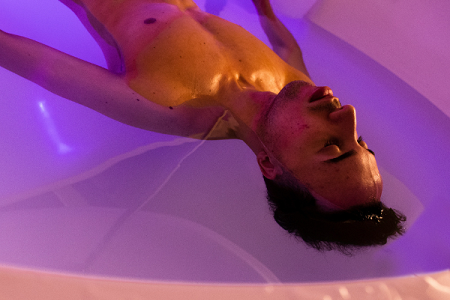Navigating the world of wellness: what do you need, and where should you start?
There’s a lot out there right now, so follow our handy wellness guide

Modern life has got us down. The rise in wellness centres, yoga studios, and a general interest in our own spiritual and mental wellbeing isn’t an accident – our mental health services are overloaded because collectively, we all have a problem. However, it’s not all bad news. The growing awareness of the importance of taking care of our mental health has created a whole new wellness sector, with treatments out there promising to help you with anxiety, depression, stress disorders and more. From the scientifically-supported to the slightly more out there, we’ve been taking a look at what’s, you know, out there!
Massage and osteopathy
From hot stone and Indian head massages, to deep tissue massages for the brave, there are more ways than ever to get someone else’s magic hands fixing your body’s ailments! However, not all high street massage establishments are on a level playing field; If you’re looking for a new type of massage, the folks at Croydon’s Wellness Therapy Centre have a guide of what to look out for.
Osteopathy takes it one step further. The clinically-recognised practice of restoring your body to a state of balance through physical manipulation, stretching and massage, osteopathy is based on the principle that the wellbeing of an individual depends on the skeleton, muscles, ligaments and connective tissues working in tandem with the nervous and circulatory system – essentially, every bit of us is physically and mentally is connected.
TRY IT WHEN: Your stress and tension is manifesting itself in your muscles and bones.
Acupuncture
Modern acupuncture treatments have their roots in ancient Chinese medicine and the belief that an energy, or life force, flows through the body in channels and has certain points of intense concentration that can be manipulated to help us feel better physically, emotionally and spiritually.
When ‘Qi’ (pronounced ‘chee’) doesn’t flow through the body it can cause illness, and by the insertion of needles into specific energy points in the body, the Qi can be manipulated and restored, thus restoring health. The range of treatments available are long and the NHS only considers it a viable treatment for specific treatments like migraines and joint pain, but on the other side of the argument, there are hundreds of clinical studies championing its effectiveness in treating everything from nausea, to anxiety, depression, insomnia and infertility.
TRY IT WHEN: Your Qi is out of whack.
Cognitive behavioral therapy
CBT is a tried-and-tested, scientifically backed and NHS-prescribed therapy treatment designed to change the way you think. If you’ve ever been diagnosed with anxiety or depression, it’s likely you’ll have had some experience with the practice, but for the uninitiated, it’s the process of making people aware of negative thought and behavioural patterns that distort your way of thinking. Based on the idea that our cognition, emotion and behaviour are all interlinked, our thoughts dictate our actions dictate our feelings dictate our thoughts.
And with that in mind, changing one changes the whole cycle. Whether you dive into CBT via the NHS or other means, expect a series of sessions where you talk through your issues, pinpointing the moments and reasons for your mental distress, with tasks to take home with you to start changing your thought cycles.
TRY IT WHEN: You have difficulty separating your thoughts from your emotions and actions.
Hypnotherapy
Yes, we know what you’re thinking – and thanks to TV and cinema, hypnotherapy has a certain stigma attached to it, even in 2017. The process of creating subconscious changes in a patient through hypnosis has been documented back to prehistoric times, but the term hypnosis only gained momentum in the late 1800s.
Despite the way Hollywood has portrayed it as a magic bullet for any problem, it’s best used as a course of treatments to change someone’s behaviours over a longer period of time. While it’s often linked with people wishing to give up smoking, or drinking, or any other destructive day-to-day habit, there is scientific evidence backing its use for treatment of eating disorders such as bulimia, and pain management in childbirth.
TRY IT WHEN: You want to break that habit by changing your subconscious thought processes.
Meditation and yogic practises
Meditation and yoga are enjoying a furious resurgence right now, and there’s a whole range of practises to choose from depending on what you want to achieve. As far as meditation’s concerned, there’s more to it than just taking some deep breaths – there are as many different methods as there are thoughts in your head!
And one that’s really enjoying a popularity boost is Transcendental Meditation, or TM. Lauded by everyone from Will Smith to Ellen DeGeneres, as a way of experiencing pure consciousness, if you’re looking to dive in, expect to be visited by a TM coach a couple of times to get the methods nailed, then you’re on your own. The benefits claimed are enormous and the names of successful, happy, and emotionally wealthy people swearing by the practise is growing by the day.
TRY IT WHEN: You want to change your routine, to change your thoughts and feelings.
Of course, there are wellness practises you can do on your own, too!
…and a lot of them might not even seem like a way of staying well. Journalling is a common avenue people take to document their thoughts – writing down how you feel allows you to see those thoughts as a separate entity from yourself, and therefore subjectively analyse them as to whether they’re thoughts you should dwell on.
Other creative outputs like painting, drawing, creating music, and even cooking can help keep you centred, too. And if you’re one of those people who just hates doing the washing up, a few meditative mantras while you wash can bring you back to your centre when you do that, too!
Of course there’s one wellness practice we haven’t mentioned here… floating! Introducing regular floats into your schedule can help combat many forms of anxiety and depression, as well as many more physical and mental ailments. Take a look at our page on the benefits of floating to find out if it’s the right course of action for you.










